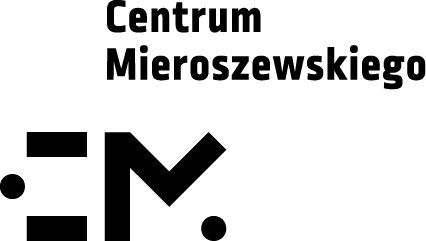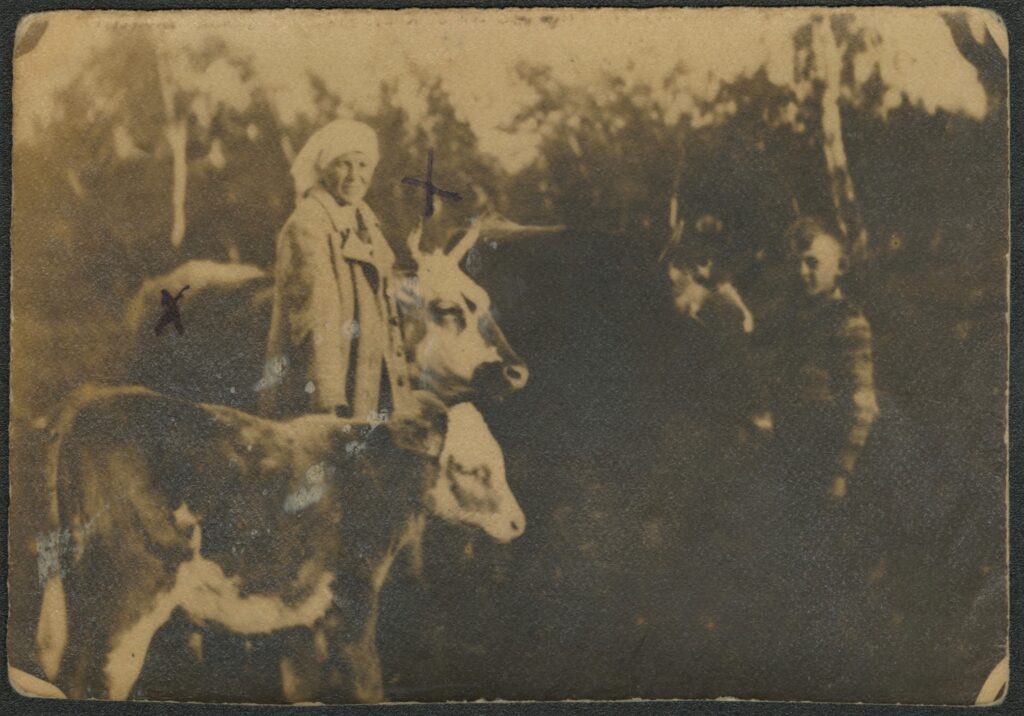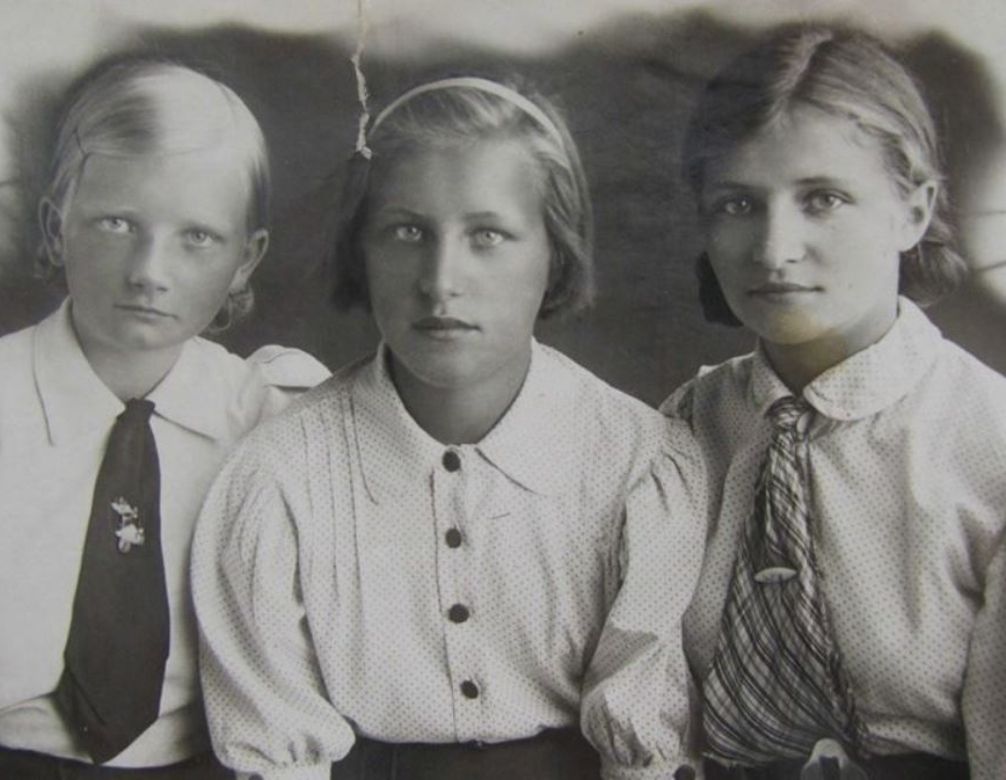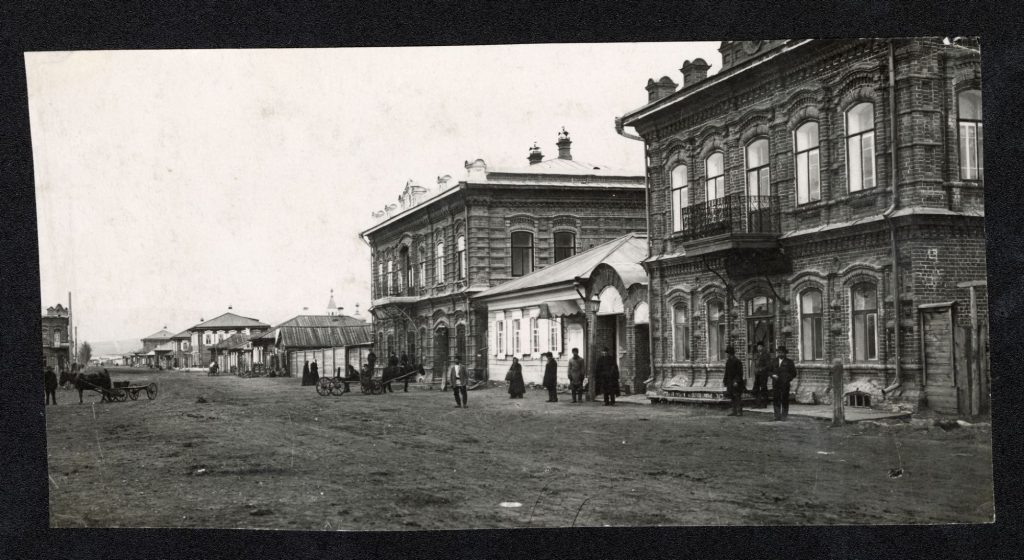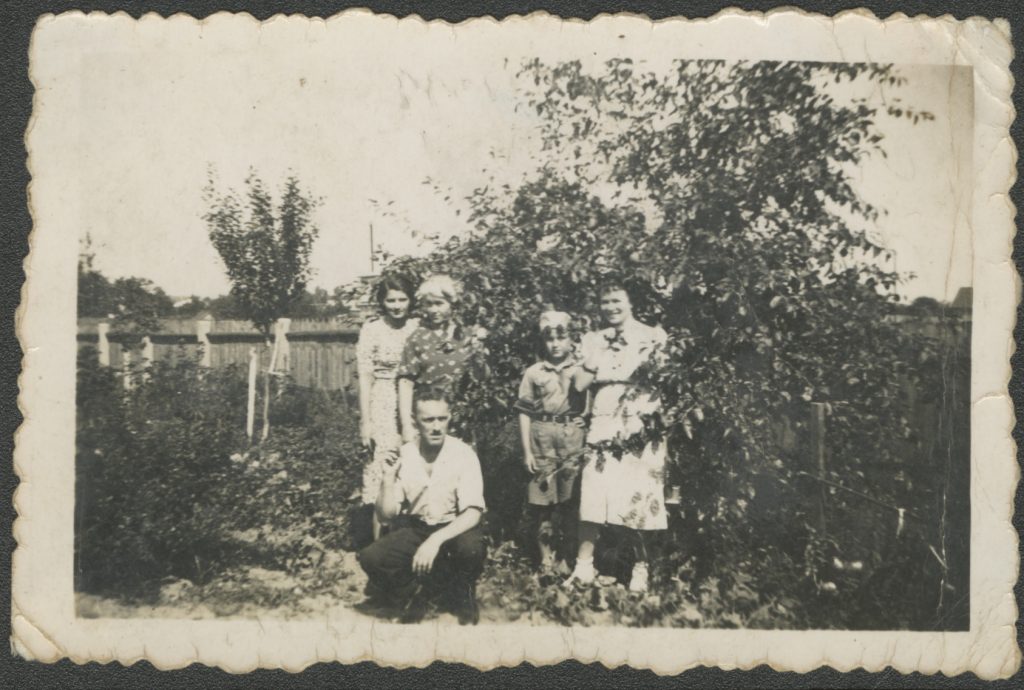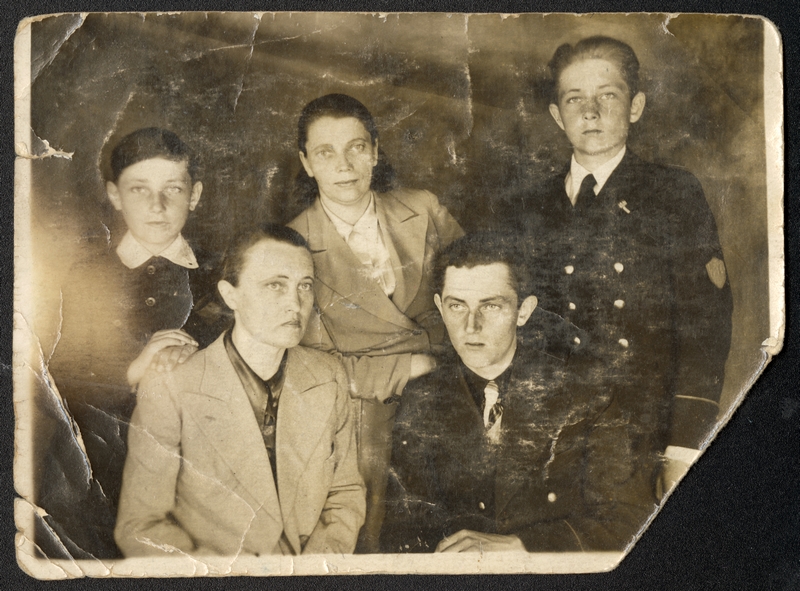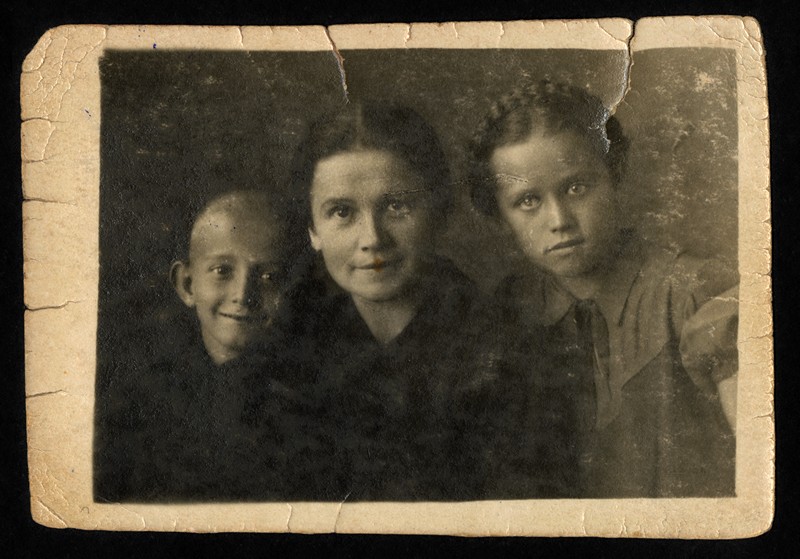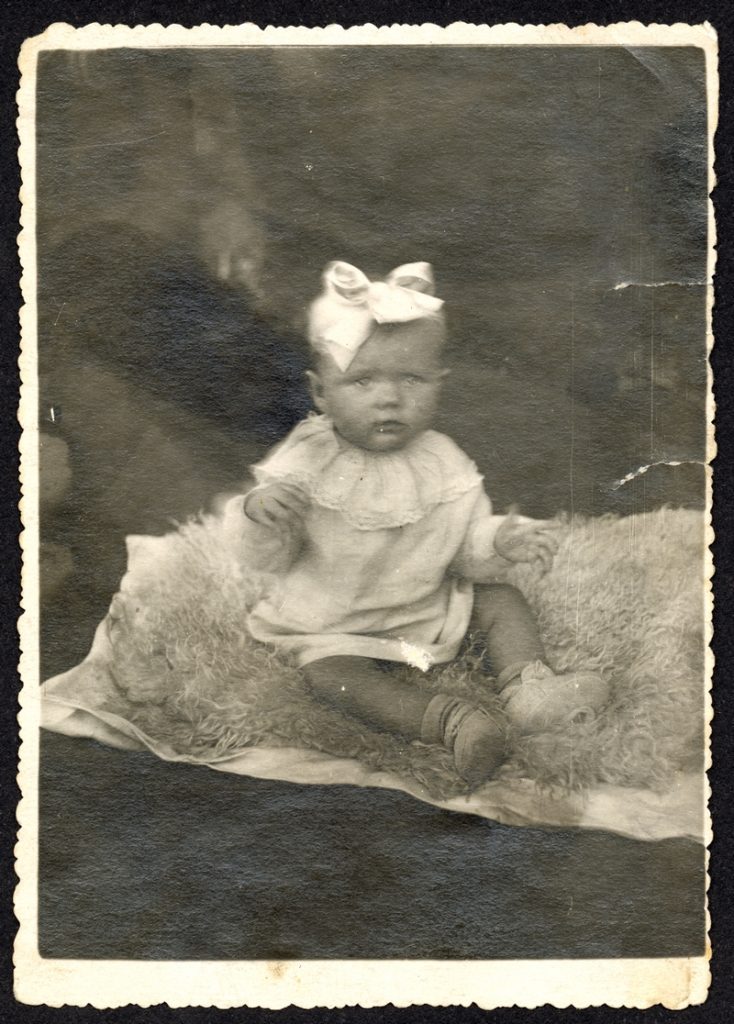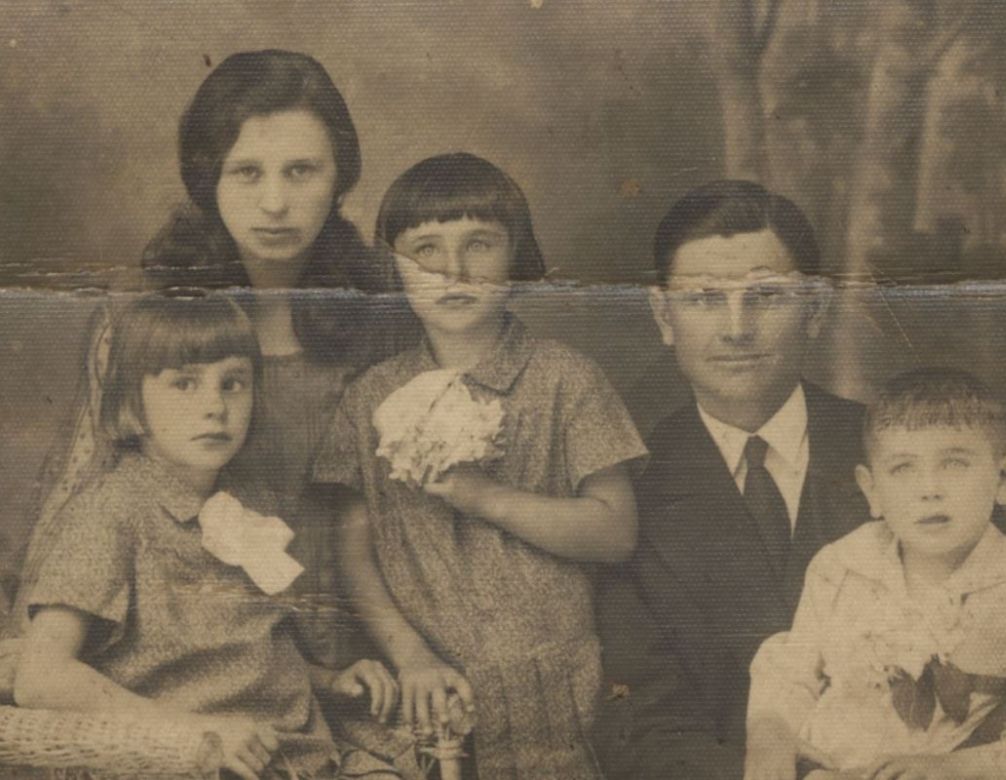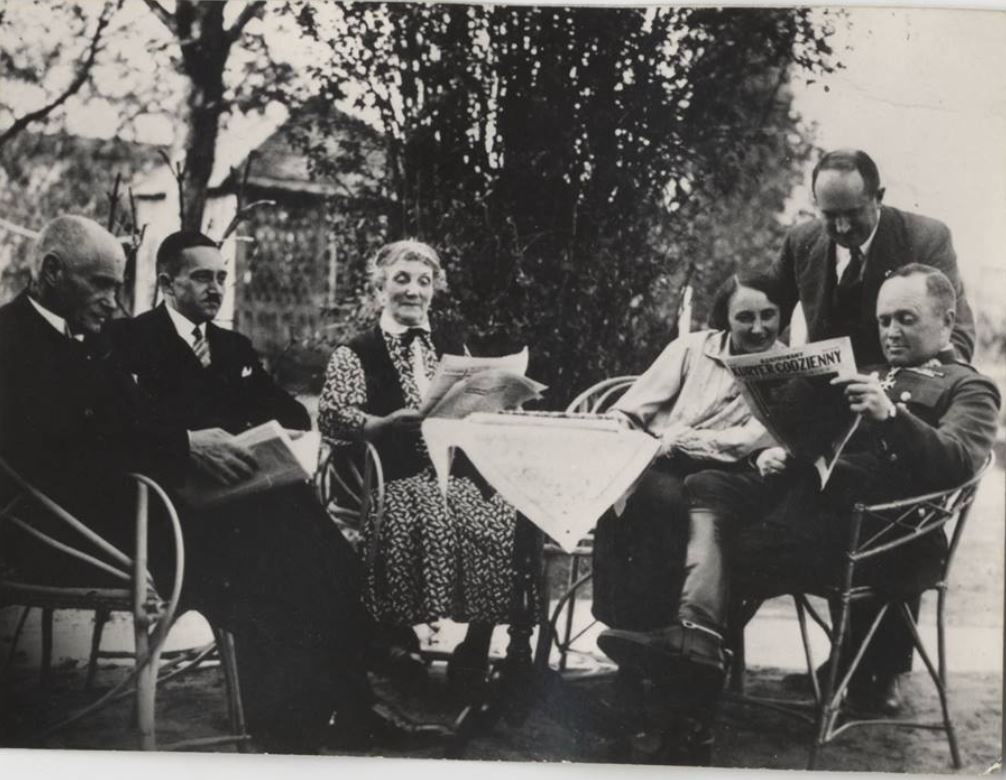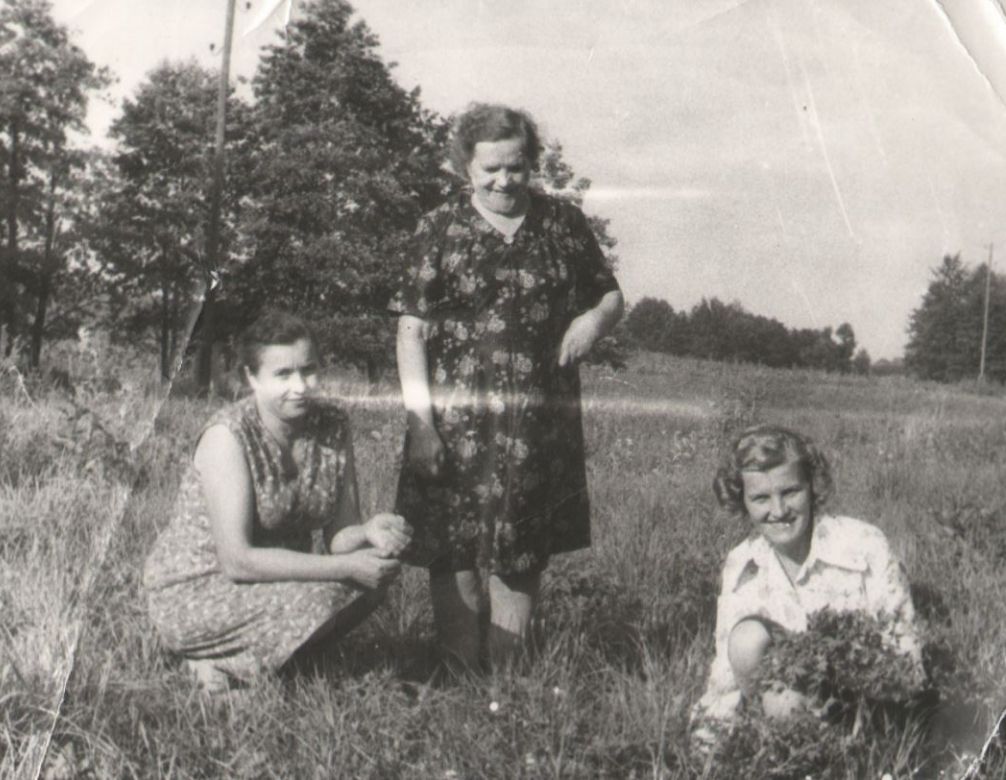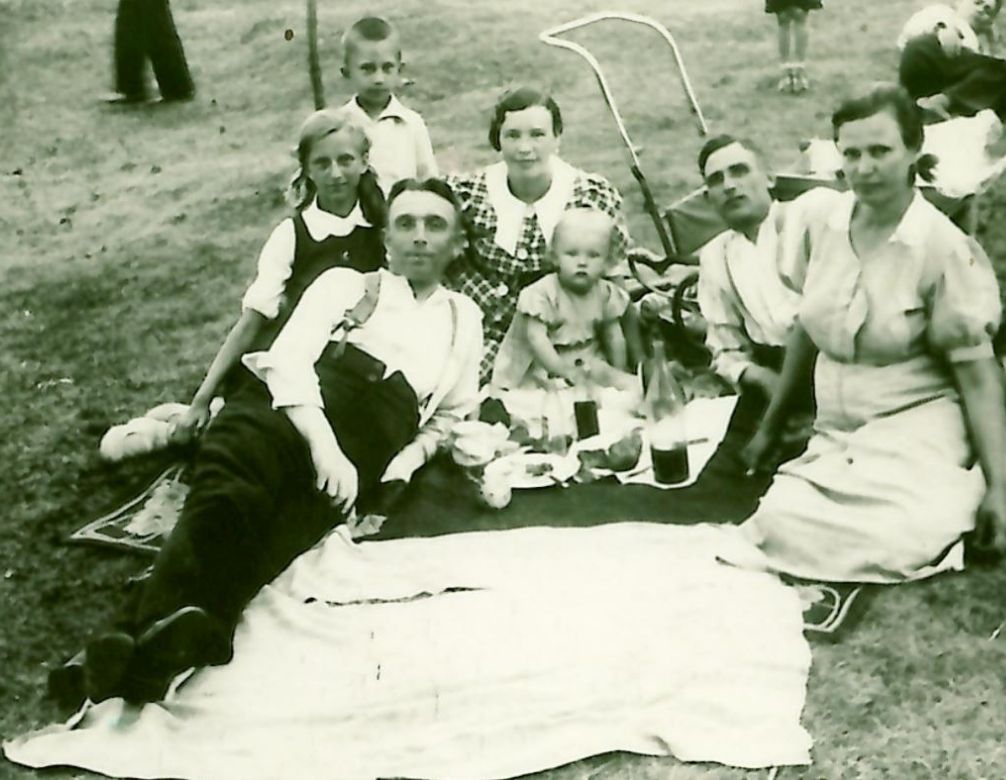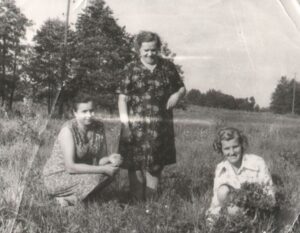
Heronima Dzierma (first on the right) with her mother Franciszka and sister Eugenia, after their return to Poland. From the Sybir Memorial Museum collection.
Heronima Dzierma, née Bielawska, was deported to Siberia in February 1940. Together with her parents Stanisław and Franciszka and sisters Eugenia and Leokadia, she was deported from the village of Mazurki (Augustów district) to the village of Kvitok in the Tayshetsky district (Irkutsk district). She returned to Poland in April 1946.
“Our teachers organised the return to Poland beautifully. Beautifully. Our wagon was festooned with green twigs and a white eagle on a red background, and the women made a white and red flag out of canvas. (…) The German woman who took over our quarters had a sewing machine (…) a pre-war Singer, and she gave this machine to my mum in exchange for the stove we left her. Mum had leftover potatoes in the cellar, which she had planted from the peelings (…) and she also gave them to this lady. (…) Some Poles still stayed because we were sent in groups. We were lucky to return in the first round. We travelled again in wagons, but it was a smoother journey: the train stopped more often, we could use bathrooms (…), and we also got some soup. I also remember the beautiful golden croissants we received, although they were small buns baked from mashed potatoes. We stood in Moscow for quite a long time, probably three days, and the older people even went to see the underground (…). Then we got to Brest, from Brest to Terespol. (…) We welcomed Poland, and Poland welcomed us. And what life was like after our return, you know, it was different.”


